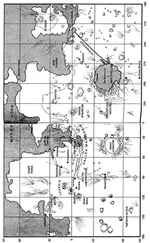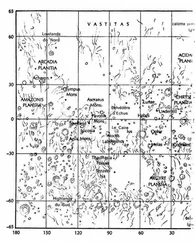Phyllis shrugged. “I consider the presence of the universe to be a miracle. The universe and everything in it. Can you deny it?”
“Sure,” John said. “The universe just is. I define a miracle as an action that clearly breaks known physical law.”
“Like traveling to other planets?”
“No. Like raising the dead.”
“Doctors do that every day.”
“Doctors have never done that.”
Phyllis looked nonplussed. “I don’t know what to say to you, John. I’m kind of surprised. We don’t know everything, to pretend we do is arrogance. The creation is mysterious. To give something a name like ‘the big bang,’ and then think you have an explanation— it’s bad logic, bad thinking. Outside your rational scientific thought is an enormous area of consciousness, an area more important than science. Faith in God is part of that. And I suppose you either have it or you don’t.” She stood. “I hope it comes to you.” She left the room.
After a silence, John sighed. “Sorry, folks. Sometimes it still gets to me.”
“Whenever scientists say they’re Christian,” Sax said, “I take it to be an aesthetic statement.”
“The church of the wouldn’t-it-be-pretty-to-think-so,” Frank said, still looking into his cup.
Sax said, “They feel we’re missing a spiritual dimension of life that earlier generations had, and they attempt to regain it using the same means.” He blinked in his owlish way, as if the problem were disposed of by being defined.
“But that brings in so many absurdities!” John exclaimed.
“You just don’t have faith,” Frank said, egging him on.
John ignored him. “People who in the lab are as hard-headed as can be— you should see Phyllis grilling the conclusions her colleagues draw from their data! And then suddenly they start using all kinds of debater’s tricks, evasions, qualifications, fuzzy thinking of every kind. As if they were an entirely different person.”
“You just don’t have faith!” Frank repeated.
“Well I hope I never get it! It’s like being hit by a hammer in the head!”
John stood and took his tray to the kitchen. The rest looked at each other in silence. It must have been, Maya thought, a really bad confirmation class. Clearly none of the others had known any more than her about this side of their easygoing hero. Who knew what they would learn next, about him or any of them?
News of the argument between John and Phyllis spread through the crew. Maya wasn’t sure who was telling the story— neither John nor Phyllis seemed inclined to speak of it. Then she saw Frank with Hiroko, laughing as he told her something. Walking by them she heard Hiroko say, “You’ve got to admit Phyllis is right about that part— we don’t understand the why of things at all.”
Frank, then. Sowing discord between Phyllis and John. And (not a trivial point) Christianity was still a major force in America, and elsewhere. If word got around back home that John Boone was anti-Christian, it could give him problems. And that wouldn’t be such a bad thing for Frank. They were all getting media play on Earth, but if you watched some of the news and features, it became clear that some were getting more than others, and this made them seem more powerful, and so they became more powerful in fact, by association. Among this group were Vlad and Ursula (whom she suspected were more than friends, now), Frank, Sax— all people who had been well known before their selection— and none so much as John. So that any diminution in Earth’s regard for one of them might have a kind of corresponding effect on their status within the Ares . This at any rate seemed to be Frank’s operating principle.
• • •
It felt as if they were confined to the interior of a hotel with no exits, without even any balconies. The oppression of hotel life was growing; they had been inside now for four long months, but it was still less than half their trip. And none of their carefully designed physical surroundings or daily routines could hasten its end.
Then one morning the second flight team was dealing with another of Arkady’s problem runs, when all at once red lights burned on several screens.
“A solar flare has been detected by the solar-monitoring equipment,” Rya said.
Arkady stood quickly. “That’s not me!” he exclaimed, and leaned over to read the screen nearest him. He looked up, met his colleagues’ skeptical stares, grinned. “Sorry, friends. This is the real wolf.”
An emergency message from Houston confirmed him. He could have faked those as well, but he was headed for the nearest spoke, and there was nothing they could do; fake or not, they had to follow.
In fact, a big solar flare was an event they had simulated many times before. Everyone had tasks to perform, quite a few of them in a very short time, so they ran around the toruses, cursing their luck and trying not to get in each other’s way. There was a lot to do, as battening down was complicated, and not very automated. In the midst of dragging plant trays into the plant shelter Janet yelled, “Is this one of Arkady’s tests?”
“He says not!”
“Shit.”
They had left Earth during the low point in the eleven-year sunspot cycle, specifically to reduce the chance of a flare like this occurring. And here it was anyway. They had about half an hour before the first radiation arrived, and no more than an hour after that the really hard stuff would follow.
Emergencies in space can be as obvious as an explosion or as intangible as an equation, but their obviousness has nothing to do with how dangerous they are. The crew’s senses would never perceive the subatomic wind approaching them, and yet it was one of the worst things that could have happened. And everyone knew it. They ran through the toruses to get their bit of battening done— plants had to be covered or moved to protected areas, the chickens and pigs and pygmy cows and the rest of the animals and birds had to be herded into their own little shelters, seeds and frozen embryos had to be collected and carried along, sensitive electrical components had to be boxed or likewise carried along. When they were done with these high-speed tasks they yanked themselves up the spokes to the central shaft as fast as they could, and then flew down the central shaft tube to the storm shelter, which was directly behind the tube’s aft end.
Hiroko and her biosphere team were the last ones in, banging through the hatch a full twenty-seven minutes after the initial alarm. They hurtled into the weightless space flushed and out of breath. “Has it started yet?”
“Not yet.”
They plucked personal dosimeters from a velcro rack of them, and pinned them to their clothing. The rest of the crew already floated in the semicylindrical chamber, breathing hard and nursing bruises and a few sprains. Maya ordered them to count off, and was relieved to hear the whole hundred run through without gaps.
The room seemed very crowded. They hadn’t gathered the whole hundred in one spot for many weeks, and even a max room didn’t seem large enough. This one occupied a tank in the middle strand of the hub shaft. The four tanks surrounding theirs were filled with water, and their tank was divided lengthwise between their room and another semicylinder that had been filled with heavy metals. This semicylinder’s flat side was their “floor,” and it was fitted inside the tank on circular tracks, and rotated to counteract the spin of the ship, keeping the tub between the crew and the sun.
So they floated in a nonrotating space, while the curved roof of the tank rotated over them at its usual four rpm. It was a peculiar sight, which along with the weightlessness made some people begin to look thoughtful in a preseasick kind of way. These unfortunates congregated down at the end of the shelter where the lavatories were located, and to help them out visually, everyone else oriented themselves to the floor. The radiation was therefore coming up through their feet, mostly gamma rays scattering out of the heavy metals. Maya felt an impulse to keep her knees together. People floated in place, or put on velcro slippers to walk over the floor. They talked in low voices, instinctively finding their next-door neighbors, their working partners, their friends. Conversations were subdued, as if a cocktail party had been told that the hors d’oeuvres had been tainted.
Читать дальше
Конец ознакомительного отрывка
Купить книгу












